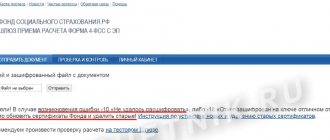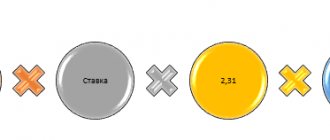Expert consultation
Federal Law No. 305-FZ dated July 2, 2021 adopted another package of amendments to the Tax Code of the Russian Federation.
The changes affected almost all taxes, as well as state duties and insurance premiums. Read about the most important innovations introduced by the Law in the article by our expert Tatyana Isaykina. You can buy ConsultantPlus here or by phone
The latest amendments to the Tax Code introduce changes to the accounting procedure for VAT, profits, personal income tax and other taxes. These also include changing the deadlines for paying property taxes in particular and taking into account the already familiar expenses associated with COVID-19 for the simplified tax system. The norms and references relating to Chapter 26.3 of the Tax Code of the Russian Federation on UTII are completely excluded from the Tax Code of the Russian Federation due to the abolition of this taxation regime.
VAT
Federal Law No. 305-FZ dated July 2, 2021 introduces a new paragraph in Art. 146 of the Tax Code of the Russian Federation, which stipulates that services and work, as well as the transfer of property rights, are not objects of taxation if they are provided free of charge by state authorities and local governments as part of the exercise of their powers to support small and medium-sized businesses, and these the amendments apply from the beginning of 2022.
Regarding release:
The main direction is the exemption of public catering from tax from 2022, the change was made to paragraph 3 of Article 149 of the Tax Code of the Russian Federation, supplemented by subparagraph 38. In addition to restaurants, cafes, bars, fast food establishments, buffets, cafeterias, canteens, snack bars, culinary departments at the specified facilities and other similar public catering facilities, catering (offsite services outside public catering facilities) is also now exempt from VAT.
Naturally, not all taxpayers will benefit from the exemption, but only those who simultaneously fulfill special conditions, namely:
- the total income of such organizations or individual entrepreneurs in the year preceding the application of the exemption must be less than 2 billion rubles;
- the share of income from the above activities must be at least 70%;
-the average monthly income of employees, determined on the basis of these calculations for insurance premiums, must correspond to or exceed the regional industry indicator for OKVED 56 “Activities for the provision of food and beverages” of Section I “Activities of hotels and public catering establishments” in accordance with OKVED.
For newly created companies and individual entrepreneurs registered in 2022, the exemption can be applied from the beginning of registration without meeting the above conditions. For companies and individual entrepreneurs planning to register for this type of activity in 2023, 2024 and later, the conditions are specified separately.
Please note that culinary departments in retail outlets of organizations and individual entrepreneurs, as well as those engaged in procurement and other similar activities, do not apply the exemption.
The company has the right to refuse this benefit in accordance with the established procedure if the use of this benefit is unprofitable for the company. Benefits can be waived by application.
It should be noted that the abolition of VAT should, according to the plan of legislators, free up more resources for attracting new employees, as well as help in restoring business after the adverse consequences of coronavirus restrictions.
The rules for VAT tax agents have been clarified if Russian taxpayers purchase services from foreign companies that are registered in the Russian Federation only for real estate or vehicles, as well as if they have separate divisions registered, but the services are purchased directly from the parent foreign company, then the Russian buyer is obliged to calculate and pay VAT as a tax agent.
From October 2022, VAT must be restored in the event that property is transferred to a mutual investment fund management company for trust management, and the mutual fund management company that received this property has the right to accept the restored tax as a deduction.
How to submit personal income tax reports?
The deadline for tax agents to submit 6-NDFL calculations and 2-NDFL certificates has been moved from April 1 to March 1 of the year following the expired tax period.
This amendment will come into effect on January 1, 2022. Since next year March 1 is Sunday, taking into account the postponement, documents will need to be submitted no later than March 2, 2020. At the same time, those with 10 or more employees will need to report personal income tax electronically. The right to submit documents on paper was left to employers with fewer employees. Now the threshold is up to 25 people.
A similar amendment applies to the RSV.
In addition, starting from the 2022 report, information on an individual’s income will be submitted as part of the 6-NDFL calculation, which, in essence, means a combination of 2-NDFL and 6-NDFL.
If there are separate divisions, legal entities whose parent organization is located in one municipality and separate divisions in another are given the right to choose one inspectorate in the municipality to which they will submit reports on the “separate divisions.” If both the head and separate divisions are located in the same municipality, then you can report at the place of registration of the head. To take advantage of this right, you will need to notify all tax authorities where “separate entities” are registered about your choice no later than the 1st day of the tax period. You cannot change your mind within a year. The same applies to personal income tax payments.
Excise taxes
New excise rates have been approved for 2022-2024. for cars, gasoline, ethyl alcohol, some tobacco products, including electronic and others.
In particular, the excise tax rate is:
- for ethyl alcohol in 2022 - 589 rubles per liter, in 2023 - 613 rubles, in 2024 - 638 rubles;
- for grapes from January 1, 2022 - 32 rubles per 1 ton;
- for wines, fruit wines in 2022 33 rubles per 1 liter, in 2023 - 34 rubles, in 2024 - 35 rubles (for wine drinks, cider, sparkling wines, beer and other rates are set separately);
- passenger cars from 90 to 150 hp - in 2022 - 53 rubles, in 2023 - 55 rubles, in 2024 - 57 rubles.
- Class 5 gasoline in 2022 - 13,793 rubles per 1 ton, in 2023 - 14,345 rubles, in 2024 - 14,919 rubles.
Rules have been established for the application of excise tax deductions in the event of irretrievable loss of customer-supplied raw materials (materials) that are excisable goods.
How will VAT change?
After the reorganization, the legal successors will have to restore the VAT that their legal predecessor accepted for deduction if they begin to use goods (including fixed assets and intangible assets), work, services, property rights in activities not subject to VAT, or switch to the simplified tax system, UTII.
Now the question of whether to restore VAT in such a situation remains controversial.
In addition, the procedure for the restoration by legal successors of VAT accepted for deduction by the legal predecessor when transferring an advance payment, as well as when reducing the cost of shipped goods, works, services, and property rights, has been established.
Personal income tax
For transactions starting from 2022, new conditions for declaring income apply. Now you do not need to submit a declaration even when selling real estate (residential houses, apartments, rooms, garden houses or land plots) and other property (transport, garages, etc.) even before the minimum period of ownership.
From 2022, it is not possible to indicate income in the 3-NDFL declaration for all real estate transactions, in particular, if a citizen has the right to a tax deduction that is equal to or greater than the amount of income from the corresponding sale. That is, if, when selling in 2022, for example, an apartment for 1 million rubles. (for other real estate - 250 thousand rubles) in 2022 there is no need to submit a declaration, since the amount of the deduction established by paragraphs. 1 item 2 art. 220 of the Tax Code of the Russian Federation, is equal to the amount of income from sales.
It is obvious that previously, when selling property less than 1 million or 250 thousand rubles, no tax arose, regardless of confirmation of expenses.
In this case, the cadastral value of the property must be taken into account. If the income from the sale is less, the income is not considered the amount of the sale, but 70% of the cadastral value. That is, it is impossible to sell an apartment for 900 thousand according to documents if the cadastral value is 2.5 million rubles. 1.75 million will still be considered income - and you will have to file a declaration and pay personal income tax.
Federal Law No. 88-FZ of 04/05/2021 added another type of social deduction - for physical education and health services. The Federal Laws under comment have adjusted the procedure for the entry into force of new rules on social deductions for physical education and health services: the norms will come into force on August 1, 2022, but they can be applied to income that individuals will receive starting from January 1, 2022.
From 2022, fitness costs can be claimed to reduce the tax base for personal income tax in accordance with Art. 8 of Federal Law dated July 2, 2021 N 305-FZ. The deduction can be claimed both for yourself and for expenses for children and wards under 18 years of age.
The maximum amount of social deduction in general for all types has remained unchanged and remains 120 thousand rubles.
Physical education and health services include activities aimed at meeting the needs of citizens in maintaining health, physical training and physical development. It also includes hosting sporting events. Moreover, sports organizations or individual entrepreneurs must be included in the appropriate list approved by the Ministry of Sports.
A new social deduction is claimed by submitting a tax return 3-NDFL with supporting documents attached.
The procedure for determining the tax base for personal income tax when receiving material benefits from the acquisition of securities and derivative financial instruments in a number of cases has been clarified. We are talking about the material benefit specified in subparagraph 3 of paragraph 1 of Article 212 of the Tax Code of the Russian Federation.
Review of changes in tax legislation from November 23, 2020
On November 23, 2022, the President of the Russian Federation signed Federal Law No. 374-FZ “On Amendments to Parts One and Two of the Tax Code of the Russian Federation and Certain Legislative Acts of the Russian Federation,” which introduced significant changes to tax legislation.
Most of the amendments come into force on January 1, 2022. The most important novellas are the following:
- from December 23, 2020, the minimum required threshold for the tax authority to apply to the court for the collection of debts on taxes and fees is increased from 3,000 to 10,000 rubles (clause 1 of Article 48 of the Tax Code of the Russian Federation);
- from December 23, 2020, tax notices can be sent to the taxpayer in only two ways: by registered mail or electronically through the taxpayer’s personal account. Also, the taxpayer is given the right to independently receive a tax notice from any tax authority or MFC (clause 4 of Article 52 of the Tax Code of the Russian Federation);
- from December 23, 2020, the minimum required amount for submitting a demand to individuals to pay tax within one year from the moment of detection of arrears is increased from 500 to 3,000 rubles (clause 1 of Article 70 of the Tax Code of the Russian Federation);
- from December 23, 2020, as a general rule, the refund of the amount of overpaid tax will be made to the taxpayer’s bank account (clause 6 of Article 78 of the Tax Code of the Russian Federation);
- from 07/01/2021, cases are established when a tax return or calculation is considered not submitted. For example, signing a declaration by an unauthorized person, a disqualified director, filing a declaration after registration of the termination of a legal entity, etc. (Clause 4.1, Article 80 of the Tax Code of the Russian Federation);
- from 07/01/2021, a VAT return will be considered not submitted if the tax authority discovers that the indicators of the submitted tax return do not correspond to the control ratios, which indicates a violation of the procedure for filling it out. The procedure for the taxpayer’s actions in this case has also been established (clauses 5.3 and 5.4 of Article 174 of the Tax Code of the Russian Federation);
- from 01/01/2021, information about issued, suspended, or canceled certificates of registration of an organization carrying out transactions with ethyl alcohol will have to be published for public viewing on the Internet (clause 9 of Article 179.2 of the Tax Code of the Russian Federation);
- from 01/01/2021, income from sources in the Russian Federation for personal income tax purposes will include dividends paid by a Russian organization to a foreign organization, subsequently distributed in favor of persons indirectly participating in Russian organizations through relevant foreign organizations (clause 1.1 Article 208 of the Tax Code of the Russian Federation);
- from 01.01.2021, reimbursement of expenses for payment for residential premises provided for temporary use will be exempt from personal income tax (Clause 1, Article 217 of the Tax Code of the Russian Federation);
- from 01/01/2021, amounts paid by the employer to compensate for the cost of travel or flights from the Far North and equivalent areas of the employee and non-working members of his family (including the cost of transporting luggage weighing up to 30 kilograms), calculated from place of departure to the checkpoint across the State border of the Russian Federation in case of vacation outside the territory of Russia (clause 1 of article 217 of the Tax Code of the Russian Federation);
- from November 23, 2020, the calculation of the minimum maximum period of ownership of residential premises or shares in it, which were acquired by the taxpayer under an agreement for participation in shared construction (under an investment agreement for shared construction or under another agreement related to shared construction), under an agreement for participation in housing -a construction cooperative, for the purpose of exemption from personal income tax on the sale of these objects, is carried out from the moment of full payment for the corresponding property, and not from the moment of state registration of the taxpayer’s property rights (clause 2 of article 217.1 of the Tax Code of the Russian Federation);
- from 01/01/2021, when determining the tax base for corporate income tax, property rights in the form of the right to free use of any property received by non-profit organizations for the conduct of their statutory activities will not be taken into account, and not just rights in relation to state and municipal property (clause 16 Article 251 of the Tax Code of the Russian Federation);
- the procedure for obtaining an investment tax deduction for expenses on scientific research and (or) development has been clarified;
- from 01/01/2021, the possibility of stopping the accrual of transport tax is established in connection with the loss or destruction of a vehicle and on the basis of a corresponding application from the taxpayer (clause 3.1 of Article 362 of the Tax Code of the Russian Federation);
- from 01.01.2021, changes in the cadastral value of a taxable object for corporate property tax are taken into account not only in cases provided for by the Tax Code of the Russian Federation, but also by the legislation on state cadastral valuation (clause 15 of Article 378.2 of the Tax Code of the Russian Federation);
- from 01/01/2021, the tax return for the property tax of organizations will need to include information on the average annual cost of movable property items recorded on the organization’s balance sheet as fixed assets in the manner established for accounting (clause 1 of Article 386 of the Tax Code of the Russian Federation );
- from 01/01/2021, the procedure for consideration by tax authorities of a notification on the provision of a deduction for land tax for certain categories of taxpayers is being clarified (clause 6.1 of Article 391 of the Tax Code of the Russian Federation);
- from 01/01/2021, the procedure for consideration by tax authorities of notifications about taxation objects selected for the provision of benefits for the property tax of individuals is being clarified (clause 7 of Article 407 of the Tax Code of the Russian Federation);
- from 01.01.2021, the procedure for consideration by tax authorities of taxpayers’ applications for the death or destruction of a taxable object for personal property tax will be specified (clause 2.1 of Article 408 of the Tax Code of the Russian Federation);
- from 01/01/2021, insurance premiums will not be levied on amounts paid by the payer for reimbursement of actually incurred and documented expenses of an individual related to the performance of work, provision of services under civil contracts, as well as payment by the payer of such expenses (clause 1 of Art. 422 of the Tax Code of the Russian Federation).
Income tax
Regarding reconstruction:
The initial cost of a fixed asset during retrofitting, completion, partial liquidation, as well as modernization or technical re-equipment, etc. varies regardless of the residual value.
Moreover, if in the above cases the useful life does not change, then only the depreciation rate changes.
Unaccounted income:
Taking into account the changes made, for tax purposes, income in the form of amounts by which in the reporting (tax) period there was a decrease in the authorized (share) capital of the organization in accordance with the requirements of the legislation of the Russian Federation or if the amount of the authorized capital became greater than the value of the company’s net assets at the end of reporting year.
Let us note that previously income in the form of amounts by which the authorized (share) capital of the organization was reduced in the reporting (tax) period in accordance with the requirements of the legislation of the Russian Federation was not taken into account.
The cost of work, services and property rights received from state authorities, local governments, small and medium-sized enterprise development corporations and its subsidiaries, organizations included under Law No. 209-FZ of July 24, 2007 in the unified register of infrastructure organizations is not included in income. support (clause 61, clause 1, article 251 of the Tax Code of the Russian Federation).
Registration as taxpayers
A new clause 4.9 has been added to Article 83 of the Tax Code of the Russian Federation, according to which tax authorities must register foreign organizations that open correspondent accounts in Russian banks. Registration is carried out on the basis of an application to the tax authority by the organization itself or by a specified Russian bank. The application must be accompanied by documents necessary for registration with the Federal Tax Service in accordance with the list approved by the Ministry of Finance.
The procedure for registering a foreign citizen who receives income from a Russian organization or individual entrepreneur has also been determined. Article 84 of the Tax Code of the Russian Federation defines the procedure for assigning a TIN to such organizations and citizens.
Tax rate:
For taxpayers involved in providing rights under a license agreement to use the results of intellectual activity, for which they are registered with the federal executive body for intellectual property, regional authorities can provide preferences in the form of a reduction in the tax rate (changes should be clarified in the laws of the constituent entities of the Russian Federation). The reduced rate can only be applied to profits from the grant of rights. To do this, you need to keep separate records. It is important that these rights belong to the organization.
Commercial transactions
Article 105.5 of the Tax Code of the Russian Federation in the new edition determines what tax authorities must evaluate, including:
- development, improvement, maintenance, protection and use of intangible assets, as well as control over the performance of these functions.
- the risk of loss of business reputation due to loss of quality and other consumer properties of goods for reasons beyond the control of the parties to the transaction;
- risk associated with the development, improvement, maintenance, protection and use of intangible assets.
The new clause 11.1 states:
When determining the comparability of the commercial and (or) financial terms of the compared transactions with the terms of the analyzed transaction, the following features of intangible assets owned, used or disposed of by the parties to the transactions or which are the object of their control may be taken into account: the type of intangible asset, the exclusivity of intangible assets, the presence and term of legal protection, territory of validity of rights to use intangible assets, service life, stage of the life cycle of intangible assets (development, improvement, use), rights and functions of the parties associated with the increase in the value of intangible assets as a result of their improvement, as well as the possibility of generating income from the use of intangible assets assets.
The methods for determining the price provided for in Articles 105.9 of the Tax Code of the Russian Federation, 105.10 of the Tax Code of the Russian Federation, 105.11 of the Tax Code of the Russian Federation, 105.12 of the Tax Code of the Russian Federation, 105.13 of the Tax Code of the Russian Federation are applied only if otherwise is not provided based on the results of the mutual agreement procedure carried out by the Ministry of Finance of the Russian Federation in accordance with an international treaty of the Russian Federation on tax issues.
A new article 105.18-1 of the Tax Code of the Russian Federation “Adjustments based on the results of a mutual agreement procedure in accordance with the international treaty of the Russian Federation on taxation issues” has been introduced into the code.
Payment deadline:
For cultural organizations engaged in creative activities, the tax payment deadlines for 2022 and 2022 have been extended, and now the payment date should not be later than March 28, 2022. Also, such organizations now have an exemption from calculating and paying advance payments for the tax periods 2022 and 2022 and from filing the declaration itself for this period.
The relaxations apply to organizations engaged in creative activities: activities in the field of art and entertainment, the activities of libraries, archives, museums and other cultural objects. The tax authorities will determine the types of economic activities for the application of preferential rules according to the OKVED code of the main type of activity of the organization as of December 31, 2022.
That is, they do not pay advance payments or declarations for 2022 and 2021. do not file, tax may be paid in 2022. These changes are intended to improve the situation of such companies affected by the pandemic.
Property taxes in 2020: a lot of new things
Some rules for property taxes on organizations will change radically from 2022. Note, in a direction beneficial for you and me.
Here are the reports that will be canceled in 2022:
- Submission of advance payments for property taxes is cancelled. But the obligation to pay advances will remain. When you calculate the advance payment on “cadastral” property, take this new nuance into account.
Due to the cancellation of advance payments, the tax return form has also been updated. Moreover, you need to use the new form already in March 2022 when submitting reports for 2022.
- Legal entities will stop declaring transport and land taxes. The latest declarations are submitted for 2022, and tax authorities will make calculations for taxes for 2020 and send them out in the form of special messages.
The deadline for payment of such notices is set as March 1. The deadlines for paying advances on transport and land taxes will also change.
In connection with the cancellation of the declaration of TN and ZN, an obligation is introduced for companies to inform the tax office about the presence of taxable property if they suddenly do not receive a notification for payment.
You can claim benefits for these taxes by submitting the appropriate application on the form that you will find here.
Bad debts:
Bad debts (debts that are unrealistic for collection) are also recognized as amounts of monetary obligations terminated to the taxpayer - a credit institution to pay the debt under the loan agreement, subject to the following conditions:
- the loan was provided to legal entities or individual entrepreneurs in the period from 01/01/2021 to 12/31/2021 for the restoration of business activities;
- in relation to the credit agreement of the credit organization in 2022 and (or) in 2022, a subsidy is (was) provided at an interest rate in the manner established by the Government of the Russian Federation.
Tax changes in 2022: personal income tax, contributions
First of all, employers can expect innovations in “salary” reporting:
- combining forms 6-NDFL and 2-NDFL;
The main innovations of this association were commented on by ConsultantPlus experts. See their explanations in the Review. Access is free.
- cancellation of the January report on the average number of employees and inclusion of this information in the calculation of insurance premiums;
- establishing in the Code of Administrative Offenses of the Russian Federation penalties for failure to submit SZV-TD or errors in this report.
Traditionally, the maximum base for insurance premiums will increase. The issue of calculating insurance premiums when paying individuals the expenses they incur in the execution of civil contracts will be resolved.
New, lower insurance premium rates have been introduced for companies in the IT sector as part of a tax maneuver.
Contribution rates for injuries will remain at the usual level for everyone. There will be no increase in fixed contributions for individual entrepreneurs. They should be maintained at the 2022 level.
In 2022, a new procedure for issuing and processing certificates of incapacity for work will be in effect. How these innovations will affect the work of accountants and personnel officers, ConsultantPlus experts told. You can view the recommendations by getting trial access to K+ online.
And personal income tax taxpayers - individuals should keep in mind:
- new form 3-NDFL for 2022;
- new rules for taxation of personal income tax on interest on deposits and bank account balances;
- increasing the personal income tax rate to 15%;
- new lists of medical services and expensive treatment for social deductions for personal income tax (approved by Government Decree No. 458 dated 04/08/2020).
Property tax
If an object is destroyed or destroyed, the tax stops being paid from the beginning of the month corresponding to the date of death or destruction. The procedure for the taxpayer is declarative. The form of this application is approved by the tax authority.
The deadlines for paying taxes and advance payments for all categories of taxpayers are centralized only in the Tax Code of the Russian Federation; the regions no longer set these deadlines. In particular, the tax is paid no later than March 1 of the following year, and advance payments no later than April 30, July 31, October 31 of the corresponding year. Such rules come into force from the beginning of next 2022.
Starting from the 2022 report, there is no need to submit a declaration for objects taxed based on cadastral value. Now taxpayers themselves calculate and pay the tax, and submit to the fiscal authorities, if necessary, only explanations or documents, or both, confirming the correctness of calculation, completeness and timeliness of tax payment, the validity of the application of reduced tax rates, tax benefits, or the existence of grounds for exemption from payment of tax. And the tax authorities only send a message about the calculated tax.
Local taxes and fees
The new edition of Article 12 of the Tax Code of the Russian Federation clarifies the powers of legislative (representative) bodies of state power of the constituent entities of the Russian Federation and representative bodies of municipalities to establish taxes and fees. The right of municipal districts to establish local taxes and fees in accordance with the norms of the Tax Code of the Russian Federation has been determined. Similar amendments were made to Article 63 of the Tax Code of the Russian Federation “Bodies authorized to make decisions on changing the deadlines for paying taxes, fees, and insurance contributions.”





